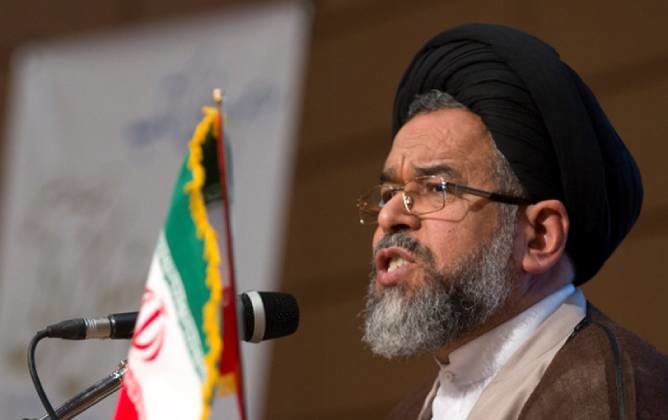
Iran’s intelligence minister, Mahmoud Mahmoud Alavi, openly expressed concern last weekend about the spread of Christianity in the Islamic republic and said that some converts to Christianity were “summoned” to explain why they have converted.
The 65-year-old Alavi gave a speech before Shia clerics on Saturday, the day before the beginning of Ramadan.
According to the International Shia News Association, Alavi blamed “evangelical propaganda” for the increase in Iranian Muslims converting to Christianity in certain areas of the country.
Despite Christianity being criminalized in a country where the government is entangled with hardline Islam, the nation is experiencing one of the fastest evolving underground church movements in the world.
According to Radio Farda, Alavi told the clerics that the Intelligence Ministry and Qom Seminary, the country’s largest Islamic seminary, have dispatched individuals and institutions that are active in “countering the advocates of Christianity” to areas where Muslims are being converted.
“People tend to become Christians who are ordinary people of the community, for example, their sandwich shops and the like, and they became a Christian family,” he was quoted as saying.
Alavi also said that in a city like Hamadan province in northwestern Iran, the government was given no choice but to summon Muslim converts to Christianity to ask why they have embraced the religion over Islam.
“Some of them said that ‘we were seeking a religion that would calm us and establish ourselves with us and brotherhood,'” Alavi was quoted as saying. “We told them that ‘Islam is a religion of brotherhood.’ They said that ‘we see that the scholars of Islam and those who talk behind the podium talk continuously against each other, if Islam is a religion of [peace], then first of all, one must create [peace] between his scholars.'”
The intelligence minister reportedly said that although the agency is not responsible for finding the root cause of the mass religious conversion to Christianity in Iran, it is “happening right before our eyes.”
Radio Farda, the Iranian affiliate of Radio Free Europe/Radio Liberty, surmises that the converts who spoke with the intelligence ministry must have been referring to ongoing disputes between Iran’s ruling clerics.
Underground house churches continue to spring up across Iran, although they must do so in secrecy because they risk torture and imprisonment in the Islamic republic.
Believers can be arrested for preaching the Gospel or having a copy of the Bible translated into Farsi.
Although it’s hard to get an accurate read on how many Christians are in Iran, estimates have ranged from 800,000 to over 1 million.
Open Doors USA, an organization that operates in dozens of countries to help the persecuted church, reports that converts to Christianity “bear the brunt” of the Christian persecution in Iran — by the government or their own family members.
“The government sees them as an attempt by Western countries to undermine Islam and the Islamic regime of Iran,” an Open Doors fact sheet reads. “Many Christians (especially converts) have been prosecuted and sentenced to long terms in jail. Others are still awaiting trial. During this time, their families face public humiliation.”
Open Doors notes that several house churches were razed during the 2019 World Watch List reporting period, including instances in which entire congregations have been arrested.
“Most are no longer functioning as house churches,” Open Doors explains.
Iran is designated by the U.S. State Department as a “country of particular concern” for “systematic, ongoing, [and] egregious violations of religious freedom.”
Open Doors ranks Iran as the 9th worst country in the world when it comes to the persecution of Christians on its 2019 World Watch List.
Courtesy of The Christian Post

